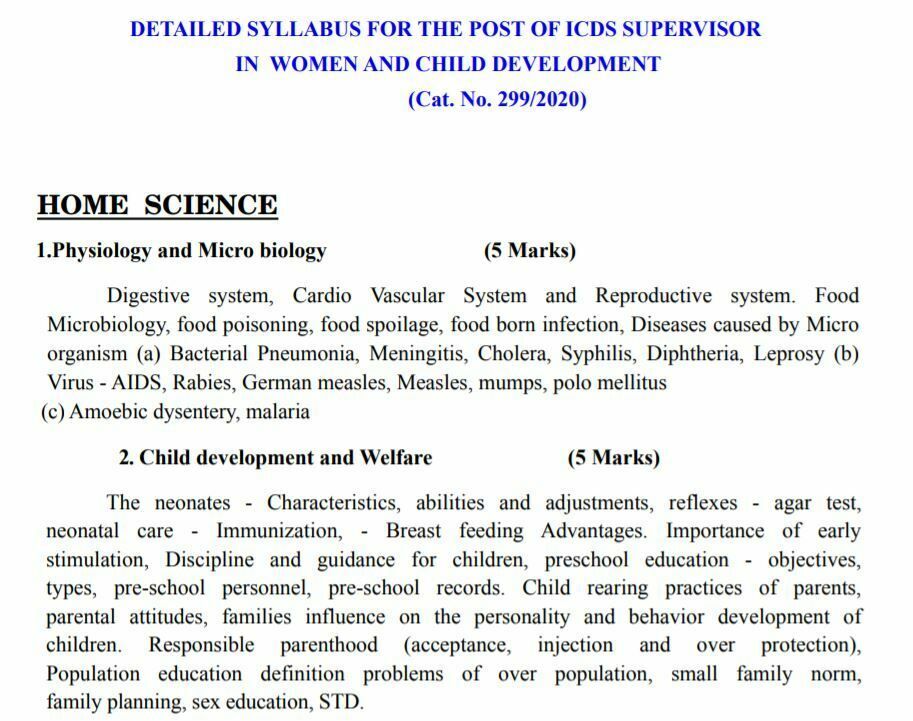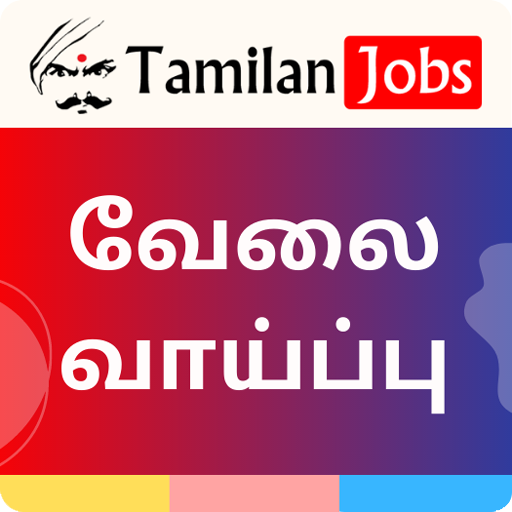Kerala PSC ICDS Supervisor Syllabus 2022 & Exam Pattern Details: Have you all registered for Kerala PSC ICDS Supervisor Recruitment 2022? If Yes, then stay here for some time and get the topics which are often asked in the question paper and which are the important topics, and so on. By knowing these candidates can get a clear idea of preparing for the exam. Therefore we have provided the Kerala PSC ICDS Supervisor Syllabus 2022 and Kerala PSC ICDS Supervisor Exam Pattern 2022 details below. Applicants kindly check the official website for more about Kerala PSC ICDS Supervisor Syllabus 2022.

Kerala PSC ICDS Supervisor Exam Pattern 2022 – Overview
| Check Kerala PSC ICDS Supervisor Syllabus 2022 @ keralapsc.gov.in |
|
| Organization | Kerala Public Service Commission |
| Post Name | ICDS Supervisor |
| Vacancies | Various |
| Status | Syllabus & Exam Pattern Available |
| Category | Syllabus |
| Job Location | Kerala |
| Official Website | keralapsc.gov.in |
NOTE: – It may be noted that apart from the topics detailed above, questions from other topics prescribed for the educational qualification of the post may also appear in the question paper. There is no undertaking that all the topics above may be covered in the question paper.
Kerala PSC ICDS Supervisor Exam Pattern 2022
We have observed that many applicants are searching the internet for the Kerala ICDS Supervisor Exam Pattern 2022. For such candidates, we have given the entire Kerala PSC Exam Pattern 2022 here in this section. Take your time and look at the table below and collect the necessary data. We have given the details like the mode of exam, number of marks, number of questions, name of the subjects, and duration of the exam which indeed helps the aspirants get the highest score in the examination. Knowing the structure of the paper helps the aspirants prepare well for the exam. So, make use of this data and get a good score in the exam.
- The mode of this exam is online (objective Multiple Choice).
- The maximum mark for this exam is 100.
- The medium of the exam is English.
- The duration of the exam is 1 hour 30 minutes.
- The questions are based on education qualification.
| Part | Name of the Subject | No. of Marks |
| Part I | Home Science | 25 marks |
| Part II | Sociology | 25 marks |
| Part III | Social Work | 25 marks |
| Part IV | Psychology | 25 marks |
| Total Marks | 100 Marks | |
Kerala PSC ICDS Supervisor Syllabus 2022 PDF
HOME SCIENCE
1. Physiology and Microbiology (5 Marks) Digestive system, Cardio Vascular System, and Reproductive system. Food Microbiology, food poisoning, food spoilage, food born infection, Diseases caused by Microorganism (a) Bacterial Pneumonia, Meningitis, Cholera, Syphilis, Diphtheria, Leprosy (b) Virus – AIDS, Rabies, German measles, Measles, mumps, polio Mellitus (c) Amoebic dysentery, malaria
2. Child development and Welfare (5 Marks) The neonates – Characteristics, abilities, and adjustments, reflexes – agar test,
neonatal care – Immunization, – Breastfeeding Advantages. Importance of early stimulation, Discipline, and guidance for children, preschool education – objectives, types, pre-school personnel, pre-school records. Child-rearing practices of parents, parental attitudes, families influence the personality and behavior development of children. Responsible parenthood (acceptance, injection and overprotection),
Population education defines problems of overpopulation, small family norm, family planning, sex education, STD.
3. Human Nutrition and dietetics (5 Marks) Good Nutrition, Malnutrition, balanced diet, RDA, Carbohydrates, Proteins, Lipids, vitamins, and minerals— Classification, functions, Sources and deficiencies, dietary fiber, Diet in fevers, Diarrhoea, constipation, Pregnancy, Lactation, Pre-school, and adolescents. Meal planning, Therapeutic nutrition, Important National and International agencies.
4. Extension education and communication (5 Marks) Extension Education, definition, need principles, philosophy, the difference between
formal, informal, and extension education. Community development -objectives, history of community development programs in India, Poverty alleviation programs in India. Program development – Planning execution and evaluation. Communication methods, Audiovisual aids – classification
5. Basic food science (5 Marks) Food groups, cereals and cereal products, pulse and legumes, nuts and oilseeds, vegetables and fruits, milk and milk products, meat, fish, egg and poultry, Beverages, spice and condiments – composition and nutrient value, selection of these foods and storage.
SOCIOLOGY
1. Family – Nature, composition, characteristics, types.- Patriarchal and matriarchal family Joint family, extended family, nuclear family, merits and demerits of joint family Disintegration of joint family in India, changing role of family, modern trends. (5 Marks) 2 . Social Problems – Domestic violence, alcoholism, dowry, dowry deaths, legislations related To dowry drug addiction, child labor, child abuse, rights of children, violence against Women , problems of elderly, social psychological and economic, social security measures Educated unemployment, and underemployment. (5 Marks)
3. Developmental Issues. – Poverty alleviation programs, consumerism, rural – urban Disparities, Environmental degradation- air pollution, water pollution, solid waste management, climatic change, problems of induced displacement- social, economic, and cultural problems of displaced people. (5 Marks)
4. Women and Development. Women in governance, gender issues, empowerment of Women, participation of women in socio-political activities, women in panchayat raj institutions, the role of self-help groups in the socio-economic development of women. (5 Marks)
5. Tools and Techniques of data collection- Primary and secondary data, observation participant and nonparticipant, interview schedule, questionnaire, structured and Unstructured, open and closed questions, and case study method. (5 Marks)
SOCIAL WORK
1. Developmental Psychology (Human Behaviour in Social Environment: growth vs. development -developmental task (by Havighurst) – the biophysical-psychological and socio-cultural changes happening during life span – Prenatal, Early Childhood, Late Childhood, Puberty, Adolescence, Young Adulthood, Middle Adulthood and Old Age – Hazards (5 Marks)
2. Developmental Welfare Needs across the Life Span: Prenatal care -immunization – breast feeding – parenting – preschool education – sex education and menstrual hygiene – prevention of substance abuse – vocational guidance – premarital counseling – career guidance and planning – retirement planning – bereavement (5 Marks)
3. Family Counselling: Family as an Institution – dysfunctional families – Family Systems Theory – Enmeshment and Boundaries – Issues: separation, divorce, remarriage -Family Life Cycle: Independence, Coupling (marriage), Parenting: babies through adolescence, Launching adult children, Retirement – Family and Couple Therapy (5 Marks)
4. Working with Groups – Groups – Types of groups: in-groups, out-groups, primary, secondary and reference – Group Dynamics: dyads and triads, competition, conflict, cooperation and cohesion, coercion, accommodation – Stages of Group Formation -Social Group Work (working with groups) – social group work process (Intake, Study, Diagnosis, Programme Development, Implementation of the program, Evaluation)
(5 Marks)
5. Reproductive Health & Family Planning: Adolescent Sexual Health (ARSH) -Contraception: temporary and permanent methods – factors affecting fertility – Infertility -STIs & HIV/AIDS – Safe Motherhood and Responsible Parenthood – Population Pyramids -Unwanted Pregnancy & Medical Termination of Pregnancy Act. (5 Marks)
PSYCHOLOGY
1. Introduction to Psychology: Psychology-approaches to psychology: structuralism functionalism-behaviorism-Gestalt psychology. Biological -psychoanalytic -Humanistic – Cognitive approaches-methods in psychology-observation- case study-survey and experimental methods.
(5 Marks)
2. Biological basis of behaviour-Brain and behavior- the neuron- the structure of neuron-synapse neurotransmitters-CNS- Sensory and motor processing- cortical localization-localization of language-localization of perception. (5 Marks)
3. Sensation Perception and Consciousness: Sensory thresholds-subliminal perceptions-colour perception-cues-Perception of form-pattern or objects-figure and Ground-0 contour-perceptual constancies-Size-shape- orientation-brightness-illusions-type of illusions-ESP-states of
consciousness-biological rhythms-dream and sleep-ASC-meditation. (5 Marks)
4. Psychological Processes :Learning: classical conditioning-operant conditioning-cognitive learning-observational learning-Memory: encoding-storage and retrieval process-sensory, short term and long term memories-chunking- working memory-semantic and episodic memory explicit and implicit memory forgetting: decay-interference-repression-amnesia-mnemonic cognitive process-Images and concepts-prototypes-language-deductive and inductive reasoning decision making- problem solving-motivation-need, drive, incentives-biological and
psychological motives-hierarchy of needs-extrinsic and intrinsic motives-intelligence-concepts of IQ. (5 Marks)
5. Personality and Abnormal Behaviour: Approaches to personality- Major ideas of Freud’s theory- assessment of personality-self report-projective measures-DSM-ICD classification anxiety disorders-mood disorders- schizophrenia-personality disorders. (5 Marks).

